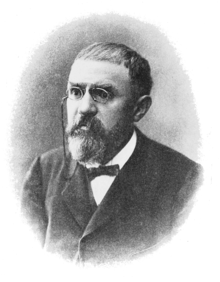Portal:Systems science
The systems science portal
 |
| Complex systems approach |
Systems science is an transdisciplinary[1] field that studies the nature of systems—from simple to complex—in nature, society, cognition, engineering, technology and science itself. To systems scientists, the world can be understood as a system of systems. The field aims to develop interdisciplinary foundations that are applicable in a variety of areas, such as psychology, biology, medicine, communication, business management, engineering, and social sciences.
Systems science covers formal sciences such as complex systems, cybernetics, dynamical systems theory, information theory, linguistics or systems theory. It has applications in the field of the natural and social sciences and engineering, such as control theory, operations research, social systems theory, systems biology, system dynamics, human factors, systems ecology, systems engineering and systems psychology. Themes commonly stressed in system science are (a) holistic view, (b) interaction between a system and its embedding environment, and (c) complex (often subtle) trajectories of dynamic behavior that sometimes are stable (and thus reinforcing), while at various 'boundary conditions' can become wildly unstable (and thus destructive). Concerns about Earth-scale biosphere/geosphere dynamics is an example of the nature of problems to which systems science seeks to contribute meaningful insights.
Selected article -
An operating system (OS) is system software that manages computer hardware and software resources, and provides common services for computer programs.
Time-sharing operating systems schedule tasks for efficient use of the system and may also include accounting software for cost allocation of processor time, mass storage, peripherals, and other resources. (Full article...)Selected picture

Systems engineering techniques are used in complex projects: from spacecraft to chip design, from robotics to creating large software products to building bridges, Systems engineering uses a host of tools that include modeling & simulation, requirements analysis, and scheduling to manage complexity.
'WikiProjects
Selected biography -
Jules Henri Poincaré (UK: /ˈpwæ̃kɑːreɪ/, US: /ˌpwæ̃kɑːˈreɪ/; French: [ɑ̃ʁi pwɛ̃kaʁe] ; 29 April 1854 – 17 July 1912) was a French mathematician, theoretical physicist, engineer, and philosopher of science. He is often described as a polymath, and in mathematics as "The Last Universalist", since he excelled in all fields of the discipline as it existed during his lifetime. Due to his scientific success, influence and his discoveries, he has been deemed "the philosopher par excellence of modern science."
As a mathematician and physicist, he made many original fundamental contributions to pure and applied mathematics, mathematical physics, and celestial mechanics. In his research on the three-body problem, Poincaré became the first person to discover a chaotic deterministic system which laid the foundations of modern chaos theory. He is also considered to be one of the founders of the field of topology. (Full article...)Did you know
- ... that the Austrian American Heinz von Foerster in 1960 in Science magazine stated, that the human population would reach "infinity" and he proposed a formula for predicting future population growth.
- ... * continuing vertically with a science of design,
- ... * then a science of complexity,
- ... that the American biologist Christopher Langton in the late 1980s is one of the founders of the field of artificial life.
Categories
Related portals
Topics
Tasks
 |
Here are some tasks awaiting attention:
|














